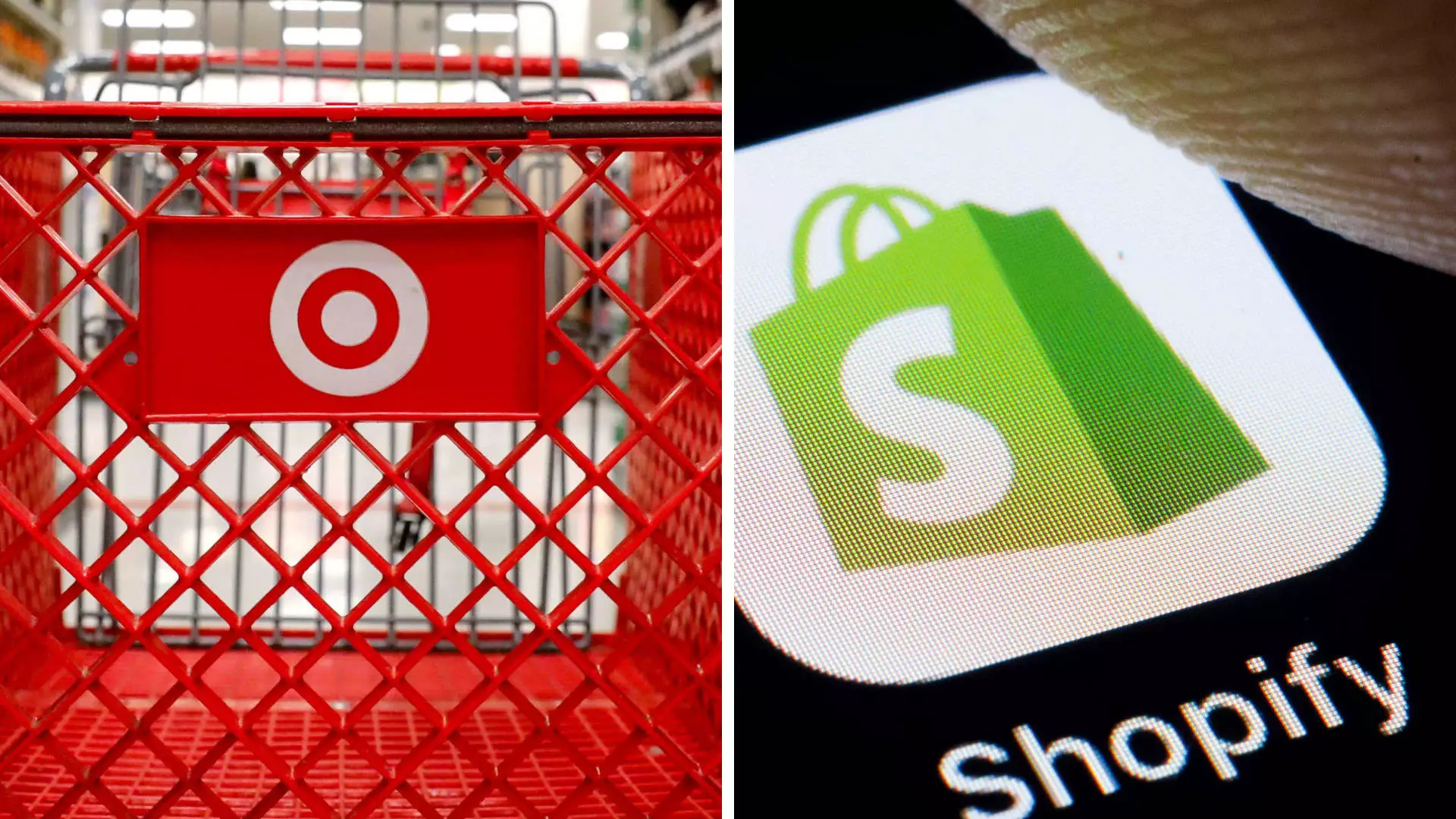Target’s decision to partner with Shopify to add new and trendier brands to its website marks a strategic move by the Minneapolis-based discounter. By opening up its third-party marketplace, Target Plus, to companies working with Shopify, Target aims to leverage the e-commerce platform’s base of smaller or up-and-coming brands. The collaboration between Target and Shopify is expected to help Target discover hot items and make them available quickly to its online shoppers.
Target’s move comes at a crucial time as the big-box retailer seeks to regain sales growth amid challenging market conditions. With consumers shifting towards buying less discretionary merchandise, Target has faced declining comparable sales over the past four quarters. Despite the growth of its digital sales by 1.4% in the first quarter, Target has struggled to keep up with competitors like Walmart in the e-commerce space. Target’s overall sales have fallen in three out of the last four quarters, highlighting the urgency of the retailer’s need to boost its sales performance.
While Target shares have underperformed the broader stock market, with only a 2% increase compared to the S&P 500’s nearly 15% rise, Shopify has also faced challenges with its shares down about 17% so far this year. Target Plus, which currently has a small share of revenue and sellers compared to other third-party marketplaces like Amazon and Walmart, offers a curated selection of products to its customers. By partnering with brands like Ray-Ban, Coach, and Crocs, Target is looking to attract a more diverse customer base that appreciates trendy and high-quality merchandise.
Target’s marketplace has gained momentum over the past year, with a doubling in both seller and product count. This growth signifies the appeal of Target Plus among sellers looking to reach Target’s vast customer base. While the revenue generated through the marketplace is not disclosed separately, Target has acknowledged the rapid growth of this segment within its overall business. Brands that join Target Plus also benefit from becoming potential customers of Roundel, Target’s advertising business, which grew by more than 20% in the most recent quarter.
The rise of third-party marketplaces in retail has presented opportunities for retailers to drive higher profits by engaging sellers who store and own the inventory. By offering a platform for sellers to connect with customers, retailers like Target can diversify their product offerings without taking on the financial risks associated with holding inventory. While Target does not provide fulfillment services for its marketplace, it allows sellers to manage their own packaging and shipping. This model contrasts with Walmart’s approach, which includes expanding its marketplace efforts to include services for bulky item shipping and a wide range of unique products.
As Target and Shopify deepen their collaboration to enhance Target’s online assortment, the growth of third-party marketplaces in the retail industry is set to continue. Marketplaces like TikTok Shop and Temu are also seeing rapid growth, pointing towards a shift in how customers shop and interact with brands online. By tapping into the power of e-commerce platforms and trendy brands, retailers can stay competitive in a rapidly evolving market landscape. Target’s partnership with Shopify signals a step towards innovation and growth in the digital retail space.
Target’s decision to work with Shopify to enhance its third-party marketplace reflects a forward-looking strategy to adapt to changing consumer preferences and boost its online sales. By leveraging the strengths of Shopify’s brand partners, Target aims to offer a more diverse and trendy product assortment to its customers. With the evolution of e-commerce marketplaces, retailers like Target are embracing new ways to engage customers and drive revenue growth in a highly competitive industry. By staying agile and collaborating with key industry players, Target is positioning itself for success in the digital retail landscape.


Leave a Reply